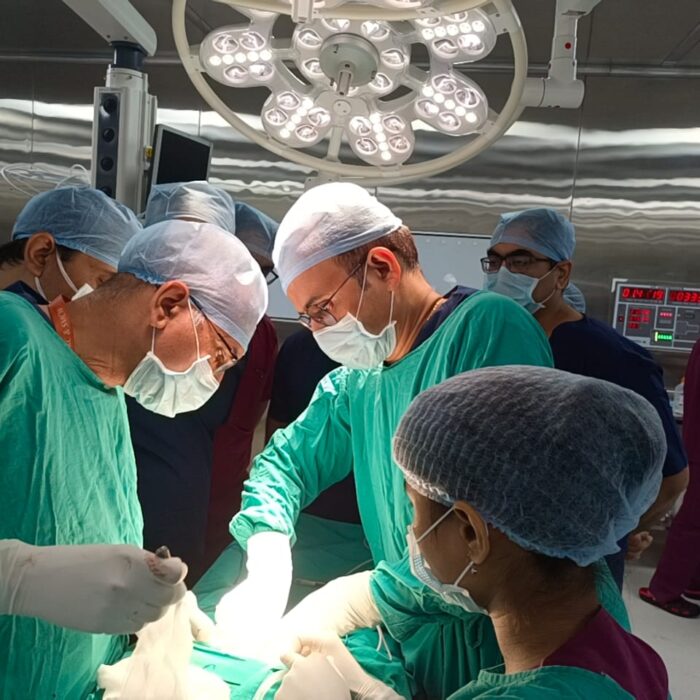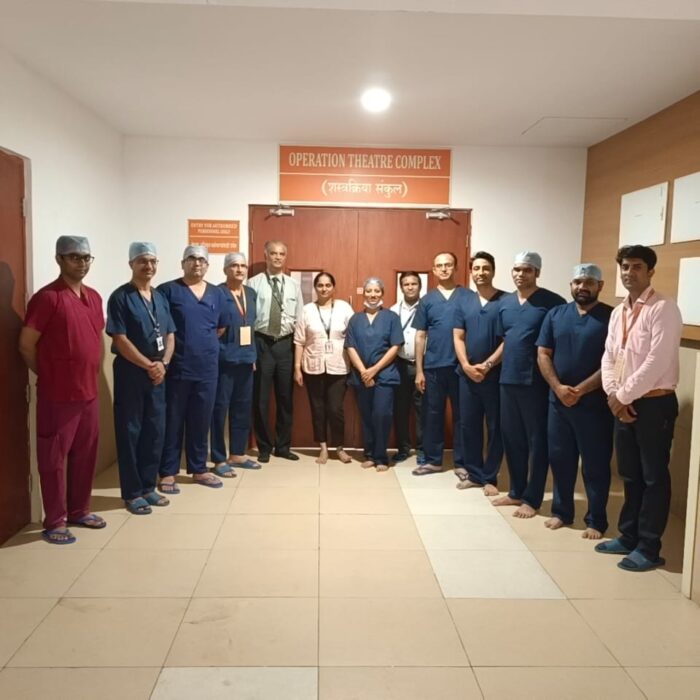
Menu
Successful Complex Fistula Operative Workshop at Symbiosis University Hospital
- Home
- Successful Complex Fistula Operative Workshop at Symbiosis University Hospital
Symbiosis University Hospital proudly hosted a successful Complex Fistula Operative Workshop on June 25, 2022. The workshop aimed to enhance the surgical skills and knowledge of healthcare professionals in managing complex fistulas. Surgeons, proctologists, and other medical practitioners gathered at Symbiosis University Hospital to participate in this immersive and hands-on learning experience.
Highlights of the Workshop:
- Expert Faculty and Surgical Mentors: The workshop boasted a team of esteemed faculty members and surgical mentors who are renowned experts in complex fistula management. These experienced professionals provided guidance and shared their expertise throughout the workshop, ensuring participants received the highest level of instruction and mentorship.
- Patient-Centered Approach: The workshop emphasized a patient-centered approach to complex fistula management. Faculty members highlighted the importance of understanding the unique aspects of each patient’s condition and tailoring the surgical approach accordingly. Participants were encouraged to consider the patient’s overall well-being, quality of life, and long-term outcomes when planning and executing surgical interventions.
- Comprehensive Surgical Techniques: The workshop covered a wide range of surgical techniques used in complex fistula management. Faculty members shared their knowledge and expertise in procedures such as fistulotomy, fistulectomy, seton placement, advancement flaps, and other innovative approaches. Participants had the opportunity to observe and learn various techniques, gaining practical insights that could be applied in their own surgical practice.
- Hands-on Operative Training: The workshop provided participants with invaluable hands-on training sessions. Under the expert guidance of faculty members and surgical mentors, participants had the opportunity to practice surgical techniques on simulation models and cadavers. These immersive training sessions allowed participants to refine their surgical skills and gain confidence in performing complex fistula procedures.
- Case Presentations and Discussions: Throughout the workshop, participants had the opportunity to present and discuss challenging complex fistula cases. Faculty members and fellow participants engaged in interactive discussions, sharing their insights, approaches, and strategies for managing complex cases. These case-based discussions enriched the learning experience, enabling participants to broaden their understanding of complex fistula management.
- Collaborative Learning Environment: The workshop fostered a collaborative learning environment where participants could interact, network, and exchange ideas with like-minded professionals. The shared passion for advancing the field of complex fistula management created a supportive atmosphere that encouraged learning, collaboration, and professional growth.



















